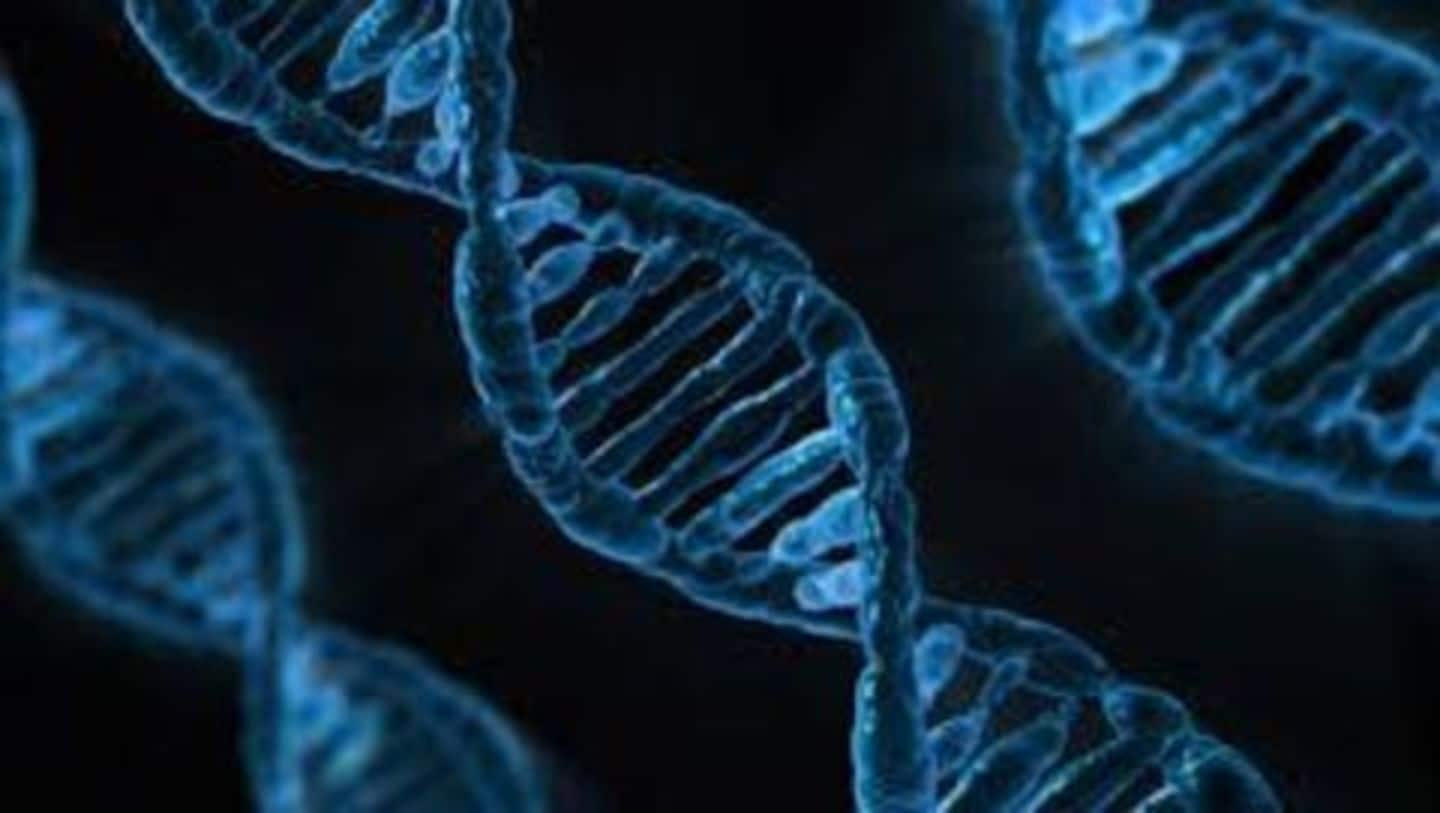
Researchers look to enable information storage in DNA
What's the story
Scientists and researchers are exploring options to store digital data in genetic DNA.
A researcher at Microsoft's Research Lab in Redmond, Washington, Karin Strauss is working with other scientists to help build a format for storing information in DNA.
The idea was presented to archive data over a long-term, in a world where data generation is higher than the provisions for its storage.
Information
What is DNA?
Deoxyribonucleic acid or DNA are the genetic molecules that make up all living organisms. These molecules form the biological and genetic frame for all aspects of an organism's growth, development and functioning. An interesting aspect is that each organism's DNA is unique.
Quote
Complications of technological advancement
"It's not that the data will disappear from the tape. A bigger problem is familiar to anybody who has come across an old eight-track tape or floppy disk and realised he no longer has a machine to play it," Strauss says.
Exploring the many possibilities of DNA
Experiments record digital storage in synthetic DNA
Scientists presented a paper this year, that showed a successful experiment where they had stored data from four files containing images to DNA fragments.
The team also worked to encode archived video files that included interviews with judges, court personnel and other lawyers belonging to the Rwanda War Crime Tribunal.
They were also able to reverse this process, without losing any information.
26 Jul 2016
Advantages of the project
The most significant aspect for the project would be the storage of information for centuries to come, and recover those from periods dating back to even Neanderthals.
This would enable storage for thousands of years.
Encoding data in DNA would need very limited space, thus providing storage for a large pool of data.
Storage in DNA would not require repeated copying across different modes.
Quote
DNA: Set to change the information storage spectrum
"In terms of information storage, that compactness could mean storing all the publicly accessible data on the Internet in a space the size of a shoebox," says Luis Ceze of the University of Washington on storing data in DNA.
26 Jul 2016
The project's challenges
Scientists and researchers are skeptical of the project's economical uses and provision to the larger audience.
With the project aims to cater to high-tech labs and other corporates to enable them to archive data from the organisation's files, the larger public will not be able to afford it.
Most critics blame the expensive technology used, making it harder to scale-up further production.